Sample Pages Preview
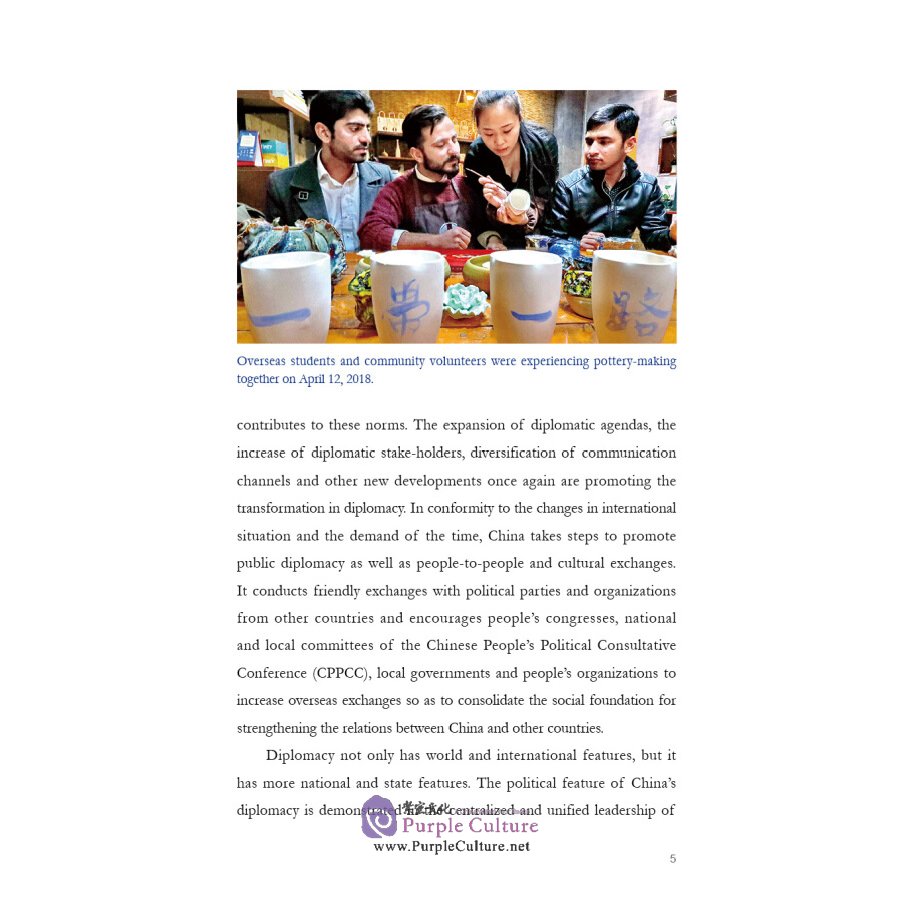
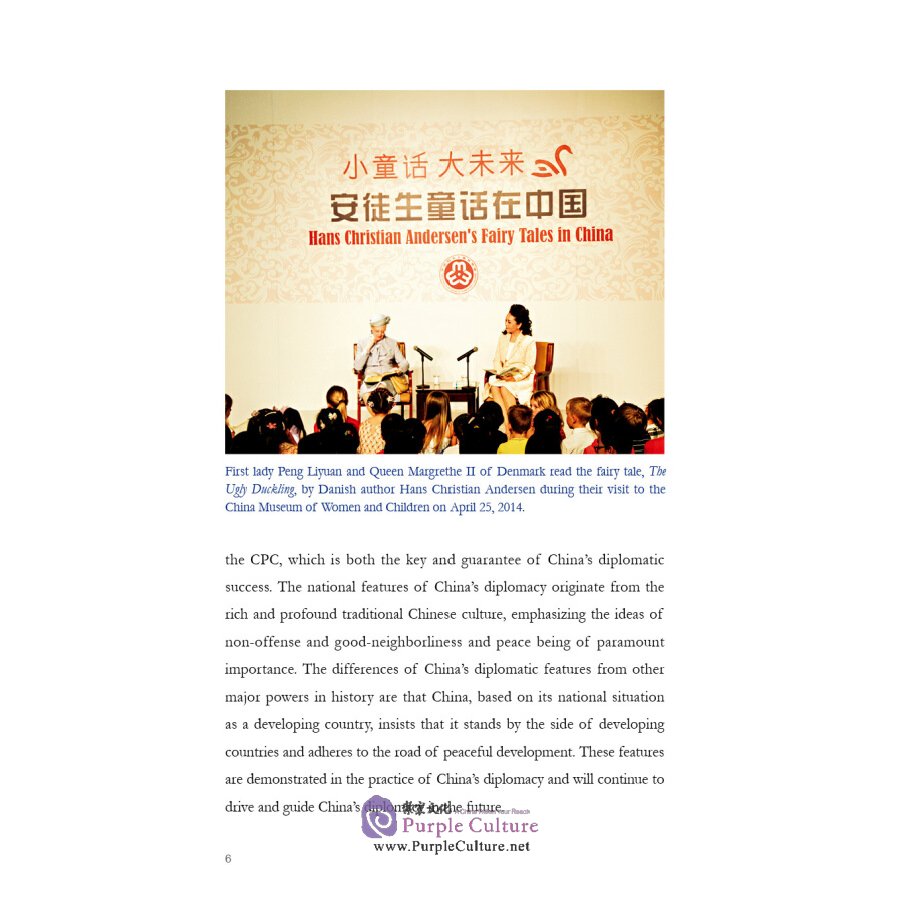
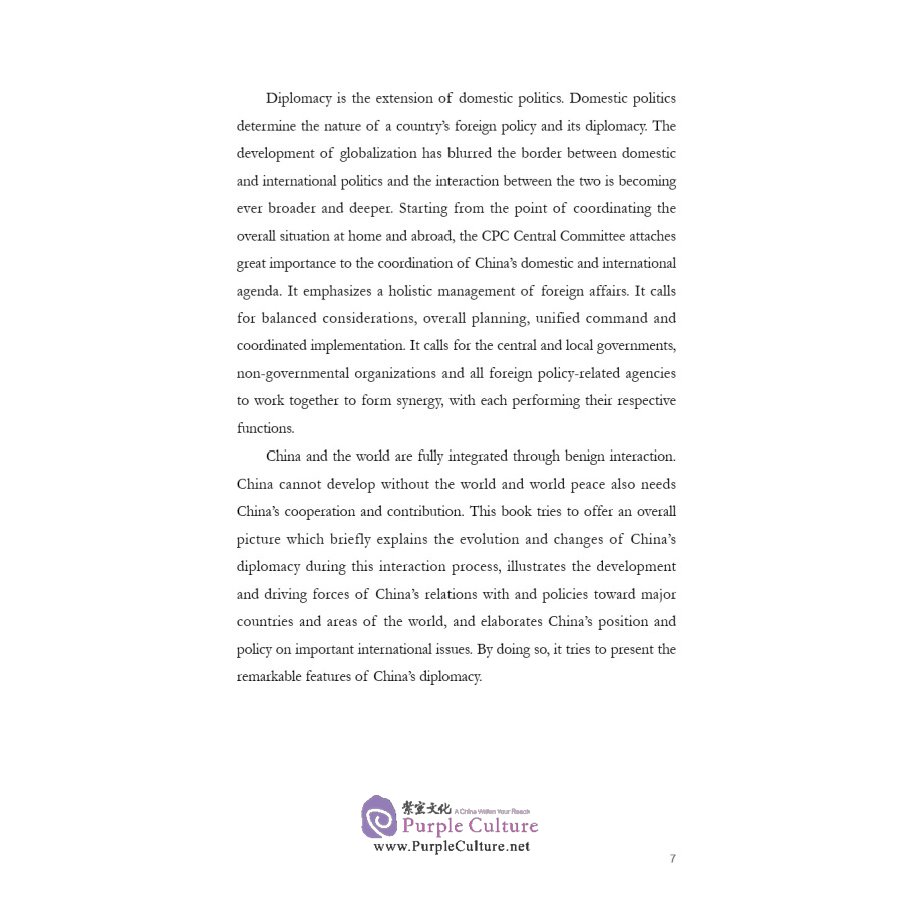
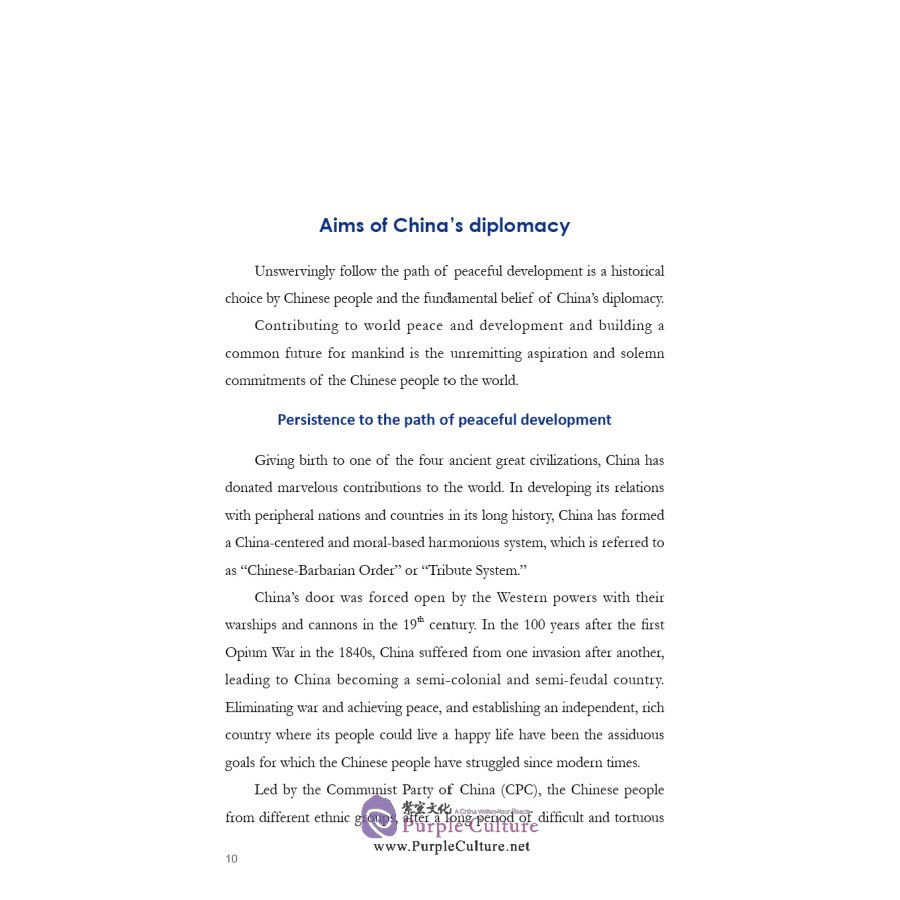
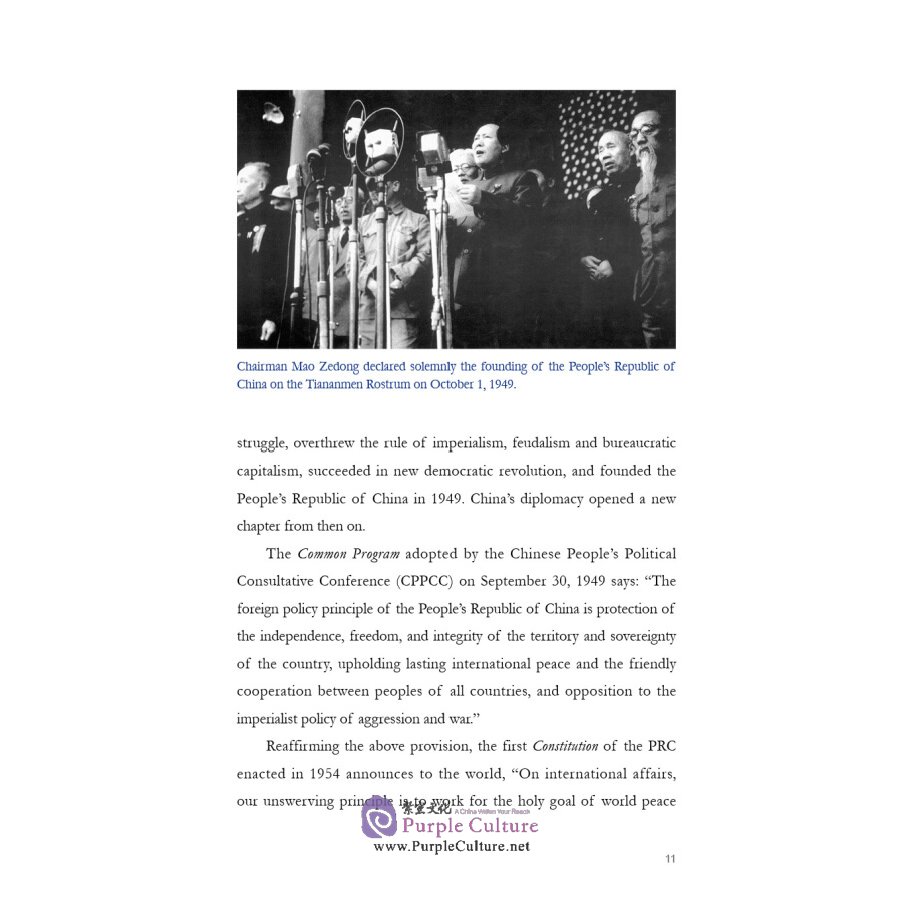
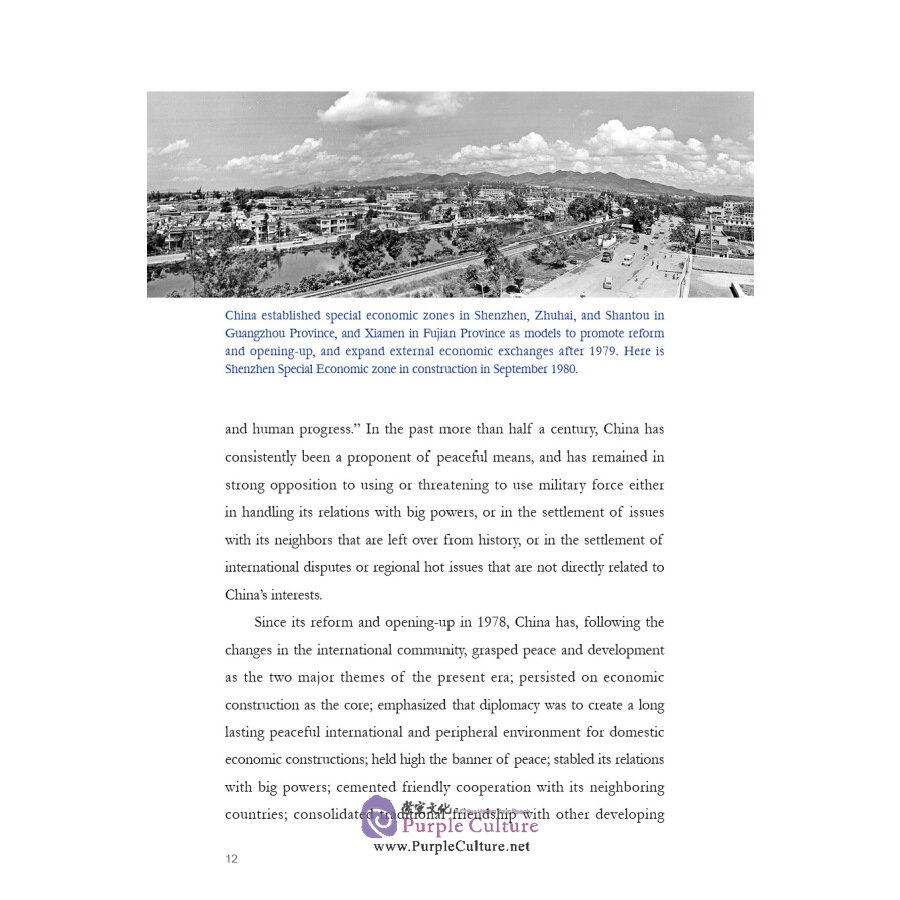 Preface
Preface
As its economy continues to grow, China is already standing under the world’s limelight. From the way it is looked at, we see both appreciation and suspicion, both recognition and criticism, both welcome and questioning. But above all, expectation is the mainstream views — expectation for a fast-growing China to undertake its due responsibilities and make greater contribution to world peace and common development.
The development of China’s diplomacy since the founding of the People’s Republic of China (PRC) tells the world that China’s diplomacy has both the universal and international features of diplomacy, but it has its own national features of Chinese culture. The experience of China’s diplomacy is not only the treasure of China’s diplomacy and the backing and base for its future but a contribution to international diplomatic theory and practice.
Diplomacy is “the conduct of adjustment and management of interstate relations.” Ever since the emergence of nation state, diplomacy has played a positive and significant role in coordinating interstate relations, maintaining world peace and promoting progress of human being. Interstate connections are becoming ever more intimated in today’s world of globalization. Diplomacy is the most dynamic and most influential international politics.
Diplomacy is the bond that connects China and the world. The goal of China’s diplomacy is to maintain good relations between China and the outside world: for China to engage in international affairs, to be integrated into the world system and enhance world's understanding of China. The evolution of the PRC's diplomacy since its founding demonstrates the situation of China’s relations with the world. China’s influence on the world and the world's influence on China are both unprecedented. The world’s opportunities are also China’s opportunities; and China’s opportunities will also become the opportunities for the world. China’s diplomacy has played a key role during this process and at the same time China’s diplomacy got improved and became matured.
Diplomacy is “the peaceful exercise of sovereignty by state.” Diplomacy is one of the means for a state to implement its foreign policy, but not the only means. Comprehensive national power is the foundation and backing for diplomacy but diplomacy is not the show of muscle but “the application of intelligence and tact to the conduct of relations between the governments of independent states.” The essential requirements for and the first characteristics of diplomacy are its very nature of peace.
Independence and peace-loving are the two fundamental features of the PRC’s diplomacy and the cornerstone of its foreign policy. To maintain world peace and promote common progress are the very goals of China’s diplomacy. China holds for peaceful settlement of international conflict and hot issues, opposes to resort to the use of force or the threat of force, opposes to regime changes from outside. China insists on developing comprehensive friendly relations with all countries on the basis of “Five Principles of Peaceful Coexistence.”
“Diplomacy is the process of implementing foreign policy.” The goal of a country’s foreign policy is to further its national interest, so is the main goal and function of diplomacy which is the means to implement foreign policy. China’s diplomacy is firm in upholding its core interests including state sovereignty, national security, territorial integrity, national unity, China’s political system established by the Constitution, overall social stability, and the basic safeguards for ensuring sustainable economic and social development. While upholding its own national interest and the legitimate rights and interests of its citizens and corporations overseas, China gives full respect to other countries in upholding their legitimate rights in their diplomacy. While furthering its goal of national development, it also takes into consideration the lawful concern and interests, forging a close net of common interests, forming a community of countries with a shared future and more intertwined interests.
Diplomacy is an important part of overall national strategy. As the change of international and domestic situation and the overall national strategy, China’s diplomatic strategies also changed correspondingly. In the rather long period of time after the founding of the PRC, the primary task of China’s diplomacy was to safeguard China’s sovereignty and territorial integrity. As the focus of China’s domestic policy turned to economic growth, China’s diplomacy has also been adjusted to serve and promote the central task of development where a sound external environment must be created for the buildup of a moderately prosperous society in all respects. The task of China’s diplomacy today is to serve and promote the “two centenary goals” (a moderately prosperous society in all respects by 2021 and a modernized socialist country by 2049) and realize the great rejuvenation of the Chinese nation.





